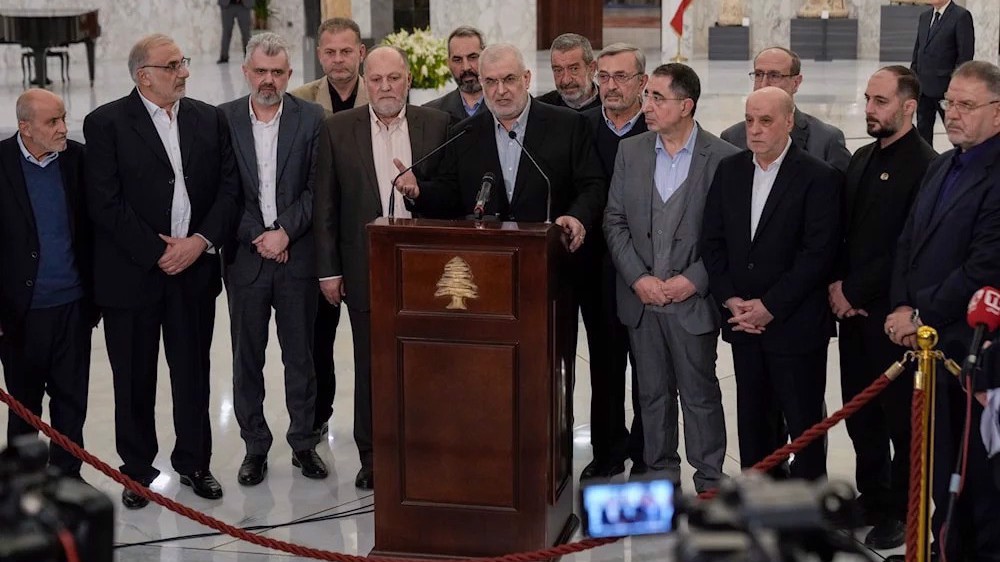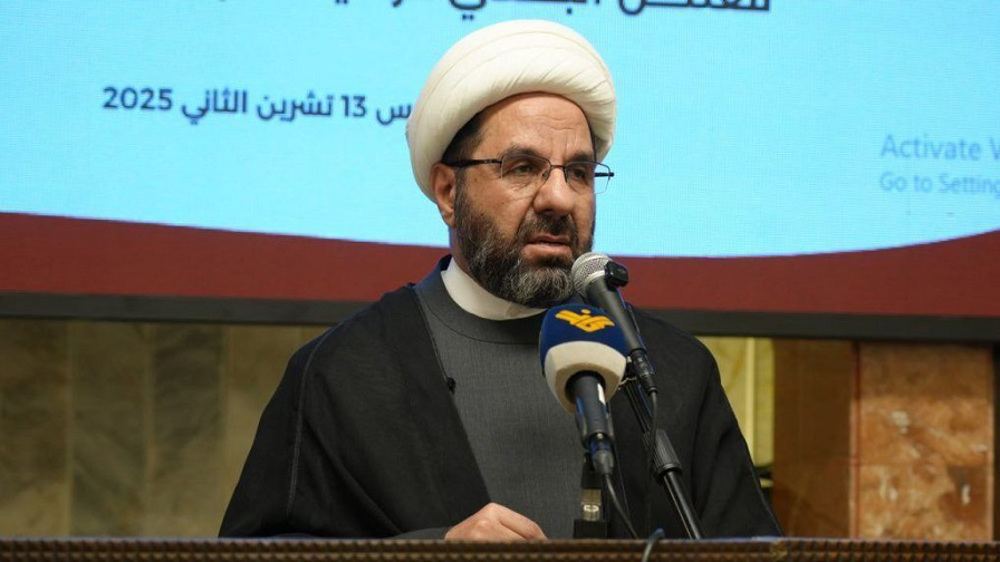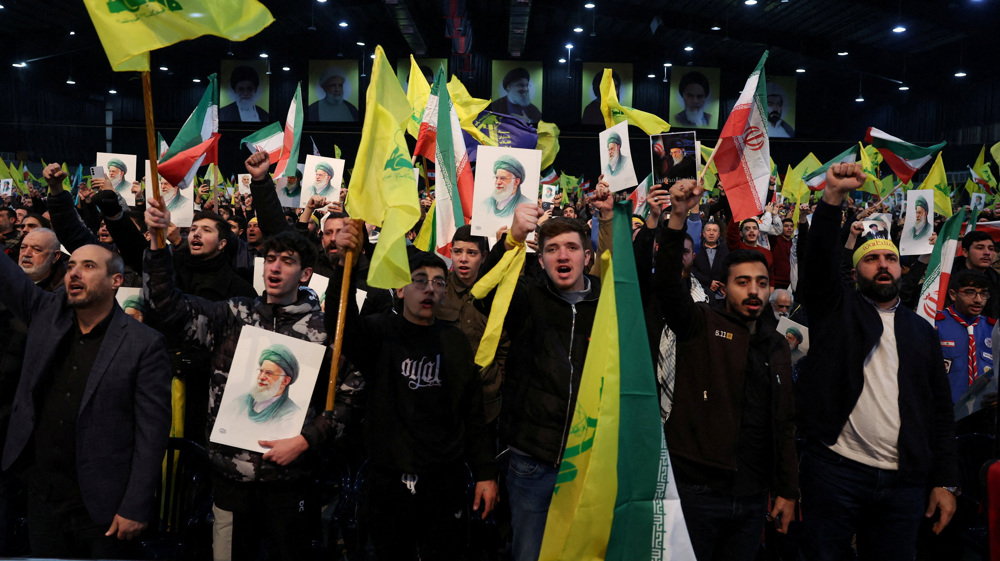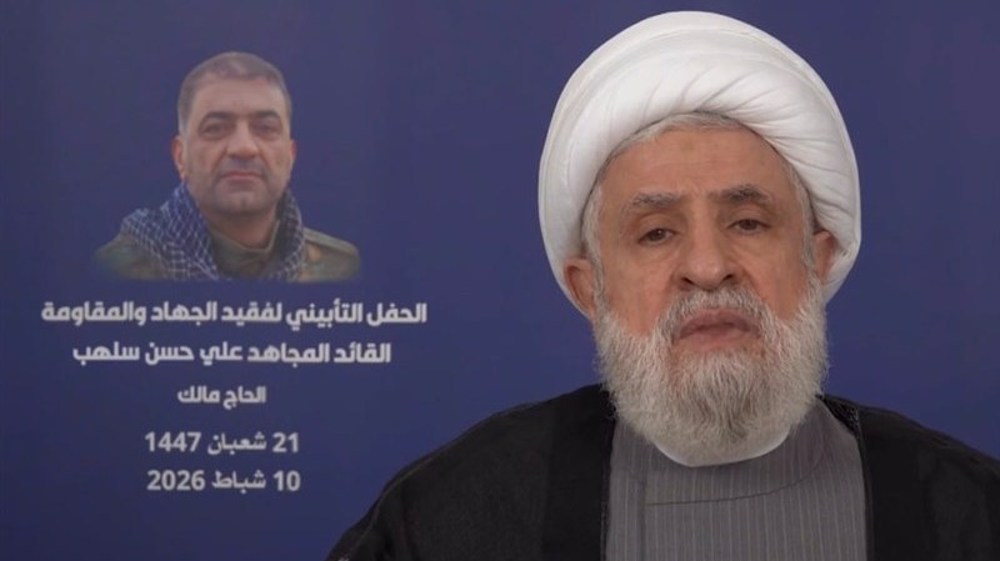Lebanon leaders blast US meddling after envoy says Hezbollah is 'red line'
Senior members of the Hezbollah resistance movement have lambasted comments by visiting US envoy Morgan Ortagus as “blatant interference” in Lebanon’s affairs and a violation of diplomatic norms and international relations.
Ortagus said after meeting President Joseph Aoun on Friday that Hezbollah “should not be included” in Lebanon’s future government and that the inclusion of Hezbollah was a “red line” for Washington.
Reacting to the comments, Mohammad Raad, head of Loyalty to the Resistance Bloc – the political wing of Hezbollah – in the Lebanese parliament, said the US envoy’s statement was “full of hate and irresponsibility.”
“It targeted a Lebanese component that is an integral part of the national agreement and Lebanese political life that stood up to Israeli aggression and emerged victorious,” Raad said in a statement to the media on Friday.
Such American comments “are an unacceptable interference in Lebanese affairs and a disrespect to all diplomatic customs and international diplomacy rules,” he added.
Rejecting Ortagus’s claim that Hezbollah was “defeated” by Israel, the Lebanese MP said, “The victor is the one who has exposed the true image of the aggressor, revealing how it commits genocide against civilians, children, and women, targets homes and hospitals, and destroys entire residential neighborhoods.”
Raad stressed that Israel’s war on Gaza and Lebanon exposed the regime’s “ugly reality,” and the global community can see who truly funds and arms terrorism and displaces people from their lands.
“We rely on the resistance of our people, which is based on the army-people-resistance equation, the realistic equation that Lebanon can be proud of as it preserves its sovereignty,” he added.
Read more:
‘Empty show of strength’
Mahmoud Qamati, deputy head of Hezbollah’s political council, also strongly responded to interventionist remarks by the US envoy and said Ortagus “threatened a large segment of the Lebanese people” through her statements.
Stressing that the Lebanese have unanimously agreed to include non-partisan figures in the to-be-formed government, Qamati said, “The US with the Donald Trump administration is implementing a new dictatorship to rule the world but it will not be able to impose its project in the region or prevent Hezbollah from participating in the government.”
He underlined that “the US envoy is putting on an empty show of strength and her statement is extreme insolence.”
Qamati stressed that foreign parties should not be allowed to intervene in Lebanon’s internal affairs, saying, “The US envoy’s statement is a clear threat to a large group of Lebanese citizens.”
Lebanon’s presidency also said in a statement on X that “some of what was issued by the US Deputy Envoy to the Middle East, Morgan Ortagus, from Baabda Palace expresses her point of view, and the Presidency is not concerned with it.”
In response to Ortagus’s statement, the Jaafari Mufti, Sheikh Ahmad Qabalan — a senior Shiite cleric and staunch Hezbollah ally — said in a statement, “Hezbollah is a national and representative force of Lebanon.”
“Hezbollah has not been defeated and will not be defeated — there is no power on earth that can eliminate Hezbollah. Sovereignty belongs solely to Lebanon and its national components, not to America and its exclusionary and destructive projects,” he added. “A government without the national duo (Hezbollah and the Amal Movement) pushes the country into the unknown.”
Moreover, a group of young Hezbollah supporters gathered in front of Beirut’s airport building on Friday afternoon to protest against the US envoy’s comments.
Waving Hezbollah’s yellow flag, they burned tires and blocked the road leading to Beirut’s international airport, with some of them spray-painting the Star of David and the words “USA” and “Trump” on the road for people to trample and cars to drive over.
The latest development comes amid reports that the US has been hindering efforts aimed at the formation of a new government in Lebanon by “pressuring” the country’s top echelons to restrict the influence of Hezbollah and its allies in the upcoming cabinet.
Five unnamed sources, quoted by Reuters, said US officials had passed on messages to Lebanese Prime Minister-designate Nawaf Salam and to President Joseph Aoun to limit Hezbollah’s sway over the country’s sectarian politics.
“Washington is pressuring top Lebanese officials not to allow Hezbollah or its allies to nominate the country’s next finance minister,” they said.
“US officials have passed on messages to Salam and to Lebanese President Joseph Aoun that Hezbollah should not be included in the next cabinet.”
The process of forming a government often takes considerable time due to Lebanon’s political and social complexities as Lebanon’s power-sharing system designates state positions on a sectarian basis, with the presidency going to a Maronite Christian, the premiership to a Sunni Muslim and the speaker of parliament to a Shia Muslim.
Army Commander General Joseph Aoun was elected by the Lebanese parliament last month as head of state ending over two years of political vacuum since President Michel Aoun left office in October 2022.
His election has raised hopes of lifting the war-battered eastern Mediterranean country out of the economic crisis.
Swiss to act as venue of next round of Iran-US talks: Report
Report: Over 50,000 soldiers fighting in Israeli military hold foreign citizenship
Danish PM warns US attack on Greenland would spell end of NATO
Power running out at key Gaza hospital, ICU patients at risk: Report
VIDEO | Press TV's news headlines
‘Speaking truth is her crime’: Netizens rip into European allies of Israel for targeting Albanese
Russia reaffirms support for Iran’s sovereignty amid rising US threats
VIDEO | 3,000 bodies of Palestinians ‘evaporated’ as Israel used banned weapons in Gaza










 This makes it easy to access the Press TV website
This makes it easy to access the Press TV website